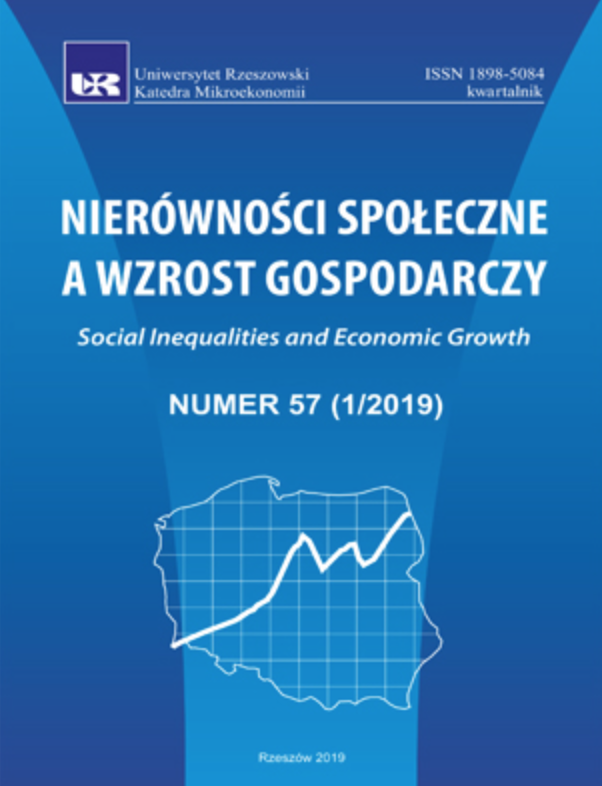Responsibility, freedom, justice, efficiency and entrepreneurship
DOI:
https://doi.org/10.15584/nsawg.2019.1.22Keywords:
entrepreneurship, underdevelopment, freedom, responsibility, justiceAbstract
According to John Paul II, responsibility in the economic activity can be realized as truth within the economic structure, in which subjectivity and freedom of labor prevails over capital and the ownership of production and land. This situation is possible in a society characterized by the existence of freedom of labor, entrepreneurship and participation. The goal of this article is to define and recognize entrepreneurship in the light of freedom and responsibility criteria. The thesis devised in this article acknowledges responsibility of a subject, government and policy as an essential condition for applying freedom. The concept of this article is based on the following viewpoint: entrepreneurship is a decisive factor in helping to overcome underdevelopment in many countries. It is worth mentioning that this article deals with issues that are often omitted in many elaborations, namely the geographic location of individual countries which is a natural barrier to development and wealth. The paradigm of economic responsibility has been extended into science, especially philosophy, which serves as the testimony of thinking and elucidates the possibility of a man’s fate crisis, which is subsequently more serious than a financial crisis. The freedom paradigm is defined on the basis of the justice principle, which means that injustice is the main cause of nations’ poverty, while justice is an essential condition for utilizing entrepreneurship as a factor that helps to attain wealth. This article is theoretical and conceptual, and constitutes development of entrepreneurship issues that have been already undertaken in numerous publications. The added value of this article is the application of Gerschenkron Underdevelopment Theory, Landes Wealth and Poverty Theory, the philosophical contribution of responsibility (Tischner) as well as de Soto Justice Theory and Hayek Freedom Constitution. The aforementioned issues are discussed in general, due to the volume restrictions of this article.Downloads
Download data is not yet available.
Downloads
Published
2020-11-13
How to Cite
Famielec, J. (2020). Responsibility, freedom, justice, efficiency and entrepreneurship. Social Inequalities and Economic Growth, 1(57), 316–326. https://doi.org/10.15584/nsawg.2019.1.22
Issue
Section
Articles
License
Copyright (c) 2019 University of Rzeszow

This work is licensed under a Creative Commons Attribution-ShareAlike 4.0 International License.


